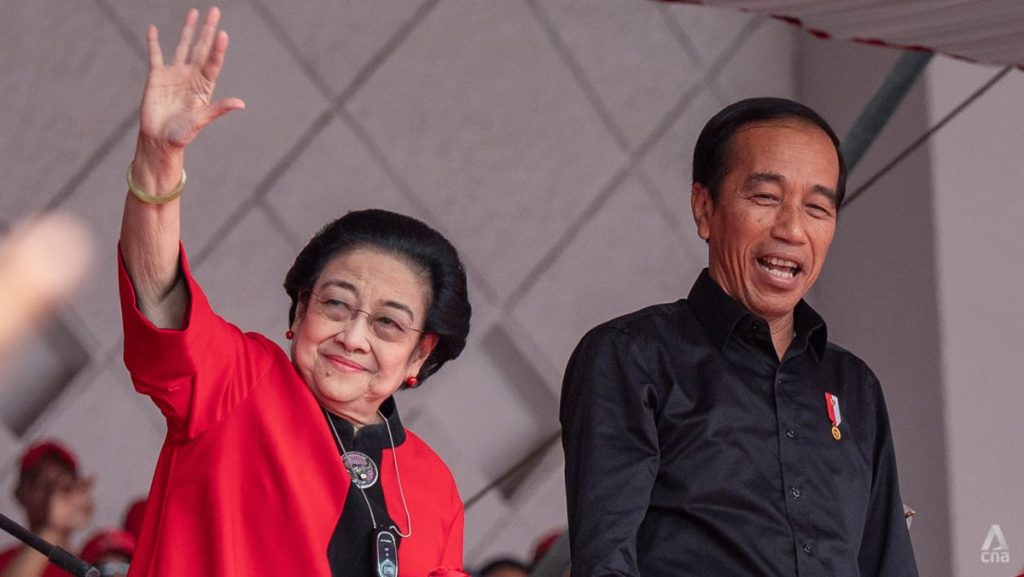The Indonesian political landscape has undergone a significant shift with the expulsion of former President Joko Widodo, popularly known as Jokowi, and his son, Gibran Rakabuming Raka, from the Indonesian Democratic Party of Struggle (PDI-P). This dramatic move comes amidst a backdrop of political maneuvering and strategic alliances ahead of the upcoming presidential race. The expulsion, stemming from Jokowi’s alleged intervention in the Constitutional Court, has realigned political loyalties and opened up a new chapter in Indonesian politics, with the former president’s future political affiliations remaining uncertain.
The PDI-P’s decision to expel Jokowi, a two-term president who rose through the party ranks, was based on accusations of abusing his power by interfering in the Constitutional Court’s decision-making process. The controversial ruling, which modified age limits for candidacy, paved the way for Gibran to join the presidential race as Prabowo Subianto’s running mate. This action was deemed a serious breach of the PDI-P’s code of ethics, leading to Jokowi’s dismissal. The incident also implicated Jokowi’s brother-in-law, Anwar Usman, who was demoted from his position as chief justice for his alleged role in influencing the court’s decision.
The expulsion marks a dramatic turning point in the relationship between Jokowi and the PDI-P, a party that had been instrumental in his political ascent. From his beginnings as mayor of Surakarta to governor of Jakarta and ultimately, president, Jokowi had relied on the party’s support, particularly that of its chairwoman, Megawati Sukarnoputri. Now, finding himself outside the party fold, Jokowi has declared himself a “one-man party,” indicating his independence while remaining noncommittal about future political affiliations. He has stated he has no immediate plans to establish a new party, opting to wait and see how the political landscape evolves.
Gibran, echoing his father’s stance, acknowledged his expulsion from PDI-P, framing it as a personal decision to dedicate his efforts to supporting presidential candidate Prabowo. While expressing respect for the PDI-P’s decision, Gibran’s alignment with Prabowo’s Gerindra Party is increasingly evident. This shift in allegiance is further underscored by the actions of Jokowi’s son-in-law, Bobby Nasution, who joined Gerindra in May and subsequently won the North Sumatra gubernatorial election on the party’s ticket.
While both Jokowi and Gibran refrain from immediately joining a new political party, Prabowo’s Gerindra Party and the Golkar Party have expressed keen interest in welcoming the former president into their ranks. Prabowo, acknowledging the potential significance of such a move, has stated that Gerindra is open to Jokowi joining but respects his decision-making process. Senior figures within Gerindra, including the party’s secretary-general, have emphasized the honor it would be to have Jokowi as a member, highlighting his experience and contributions to the nation. Golkar has also extended a welcoming hand, recognizing Jokowi’s political stature and influence.
This evolving political scenario presents a complex picture of shifting alliances and potential power dynamics. Jokowi, once a cornerstone of PDI-P, now stands independent, weighing his options amidst courting from other prominent parties. His son’s alignment with Prabowo further complicates the political equation, hinting at a potential future direction for the former president. As the Indonesian political landscape continues to shift, the decisions of Jokowi and his family will undoubtedly play a significant role in shaping the future political trajectory of the nation. The February congress of Gerindra looms large, presenting a potential platform for Jokowi’s next political move, while Golkar remains a viable alternative, eager to bolster its ranks with the former president’s experience and influence. The ongoing political developments promise a period of intrigue and realignment as Indonesia approaches its next presidential election.

